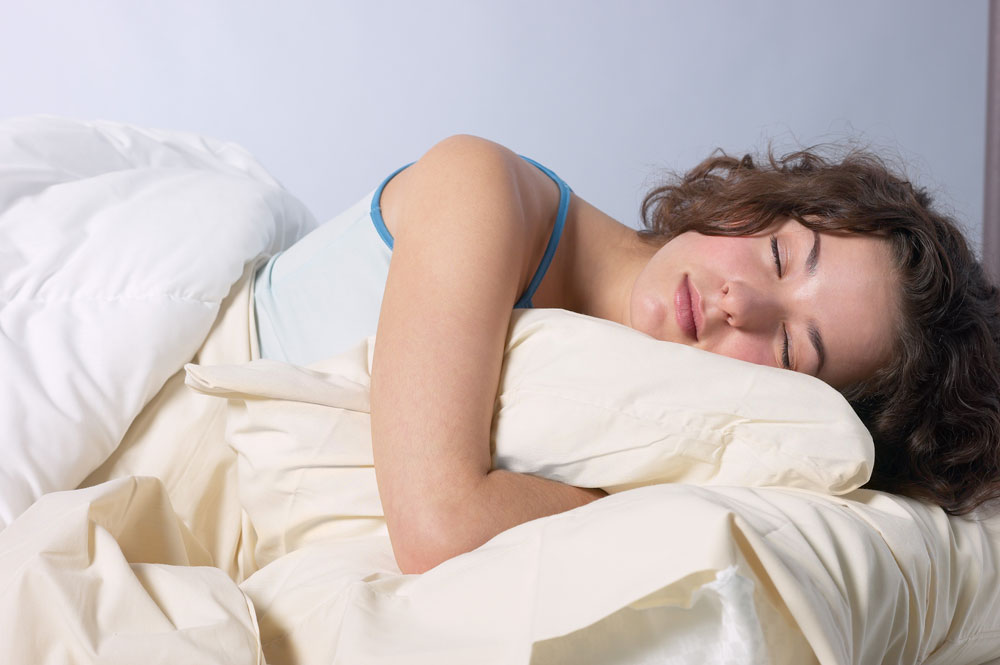Sleeping is also due to genes
Experts from the University of Edinburgh of England and University of Ludwig Maximilians of Germany say that sleeping more or less is partly due to their genes.
>>>3 habits harmful to your health
Scientists have studied more than 10,000 people across Europe, found that those carrying ABCC9 genes had a 30-minute need to sleep more than those who did not carry this gene and one-fifth of those in Europe had the gene. , information on the BBC said.
Their findings may also explain each person's sleeping habits. Everyone's sleeping needs vary considerably. Particularly, former British Prime Minister Margaret Thatcher only slept 4 hours a night while Albert Einstein needed 11 hours.

Sleeping with an important cause is due to genes.
10,000 people from the islands of Orkney, Croatia, the Netherlands, Italy, Estonia, and Germany participated in this study. Everyone must say how often they sleep during non-working days and provide blood samples for DNA testing. The researchers compared the data with genetic analysis, and found that people with the average ABCC9 gene needed more than eight hours of sleep.
Then they looked at how this gene works in fruit flies, flies also have this gene, and found that ABCC9-free fruit flies slept three hours less than normal flies.
This gene is also involved in sensing the level of energy recovery in the body, which explains why many people who only sleep a few hours a night feel enough.
They say this will open a new path to sleep research and hopefully future studies will reveal exactly how these gene variants regulate sleep time.
Dr Jim Wilson, of the University of Edinburgh's Center for Population and Health Sciences, said the sleep time of a person takes one third of their lifetime.
The tendency to sleep is more or less often due to the family, although the sleeping needs of people are affected by age, region, season, or circadian rhythm. Deep understanding of the problem of sleep is very important in shedding light on the effects of sleep on health.
Sleep expert Neil Stanley says about 1 in 12 pairs of genes are linked to sleep. Knowing these genes will be very interesting. But if we don't pay attention to the gene, it doesn't matter because no one really cares about sleeping more or more for 30 minutes.
- Why is it good to sleep on one side?
- Detecting 'sleeping genes' in fruit flies
- Guess the puppy's personality through the 6 most popular sleeping postures
- Research: Sleeping naked makes you happier
- New discovery about the effectiveness of sleeping pills
- 'Gene therapy' Near or far?
- Not having a good sleep? Try to see if there is 1 in 5 reasons!
- Decode the phenomenon of not sleeping in a strange bed
- Sleeping room for guests in transit at the airport
- Men sleeping after 0h are prone to infertility
- The reason people can't sneeze while sleeping
- 5 strange phenomena happen while sleeping makes many people panic
 Green tea cleans teeth better than mouthwash?
Green tea cleans teeth better than mouthwash? Death kiss: This is why you should not let anyone kiss your baby's lips
Death kiss: This is why you should not let anyone kiss your baby's lips What is salmonellosis?
What is salmonellosis? Caution should be exercised when using aloe vera through eating and drinking
Caution should be exercised when using aloe vera through eating and drinking Why do women sleep less and wake up more than men?
Why do women sleep less and wake up more than men?  Top 5 extremely common habits before bed, seemingly normal but have unexpected harmful effects
Top 5 extremely common habits before bed, seemingly normal but have unexpected harmful effects  Strange woman who hasn't slept for... 40 years
Strange woman who hasn't slept for... 40 years  Why does the sound of running water help us sleep better?
Why does the sound of running water help us sleep better?  Discover the political factor that keeps you up at night
Discover the political factor that keeps you up at night  Seemingly harmless habits that ruin your sleep
Seemingly harmless habits that ruin your sleep 